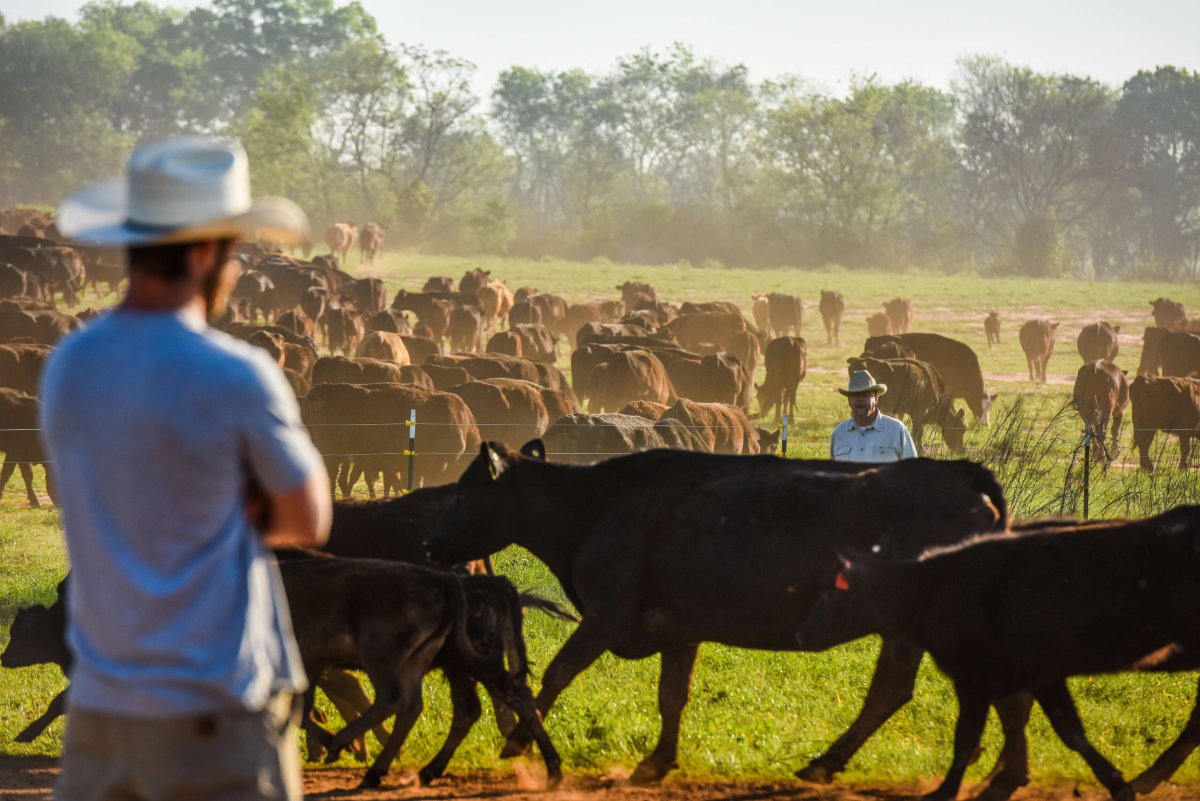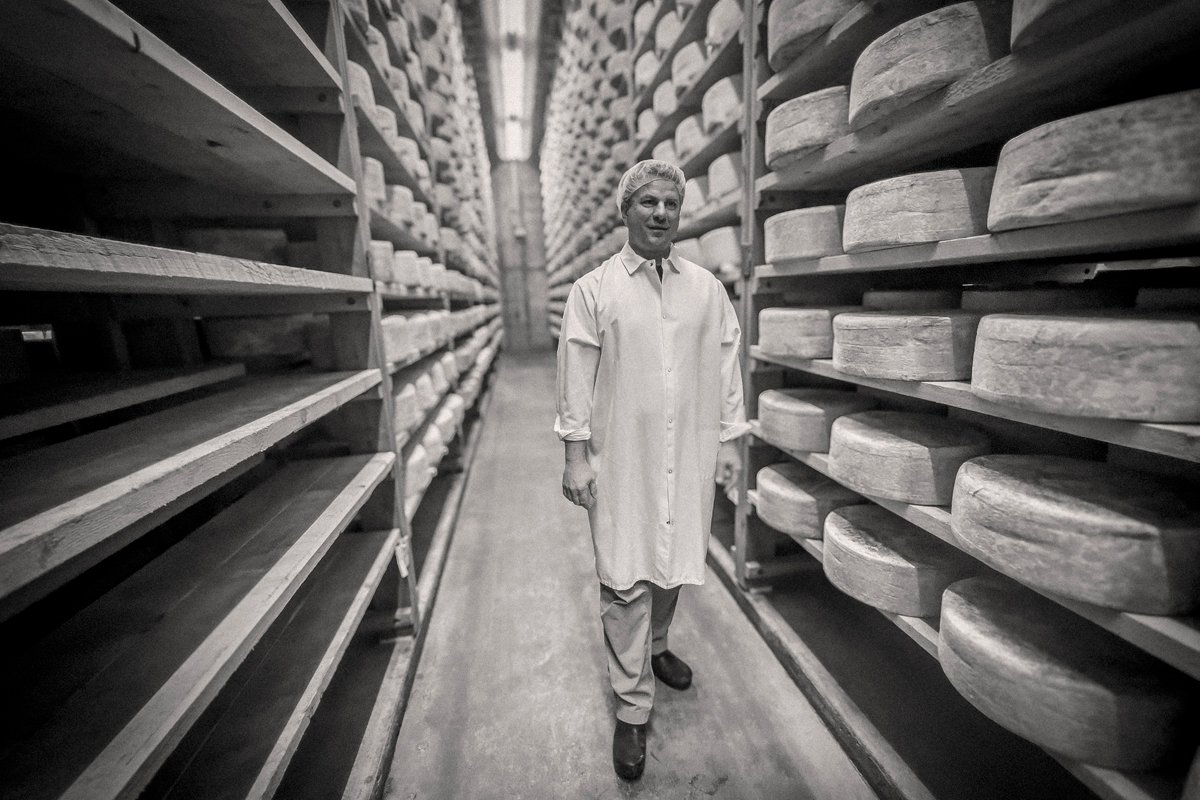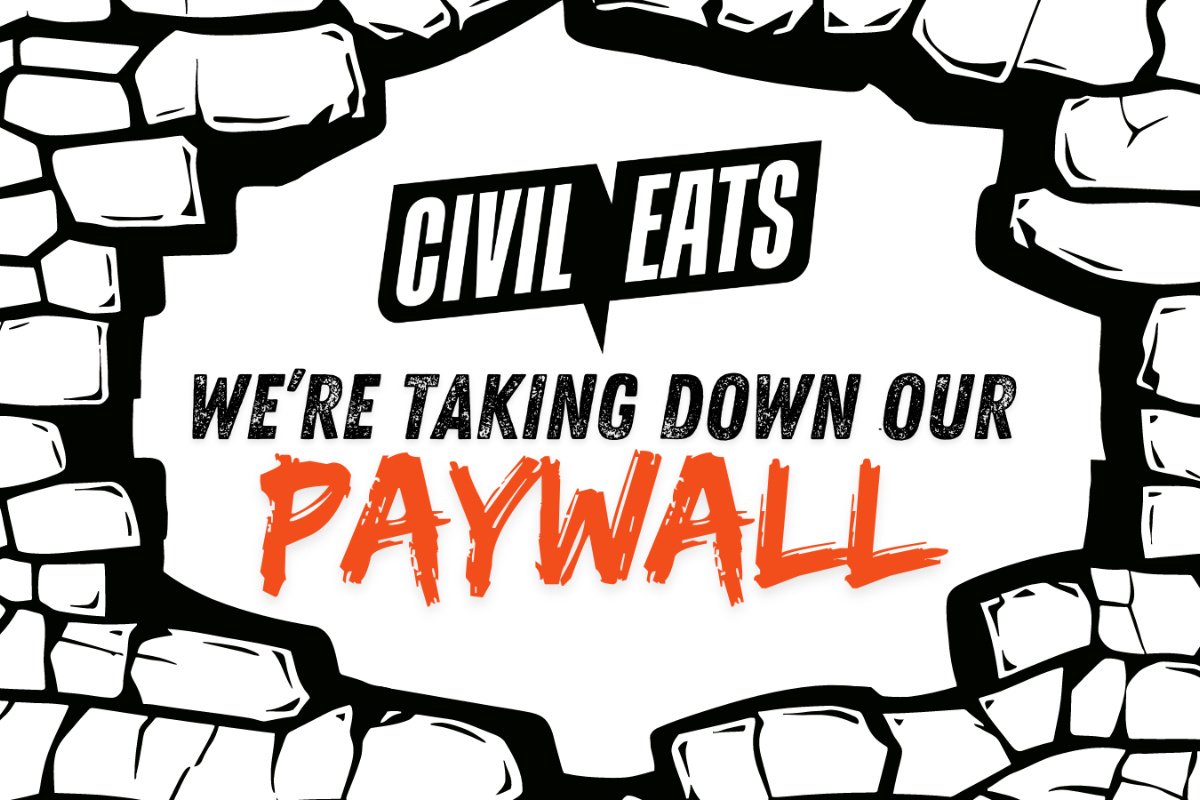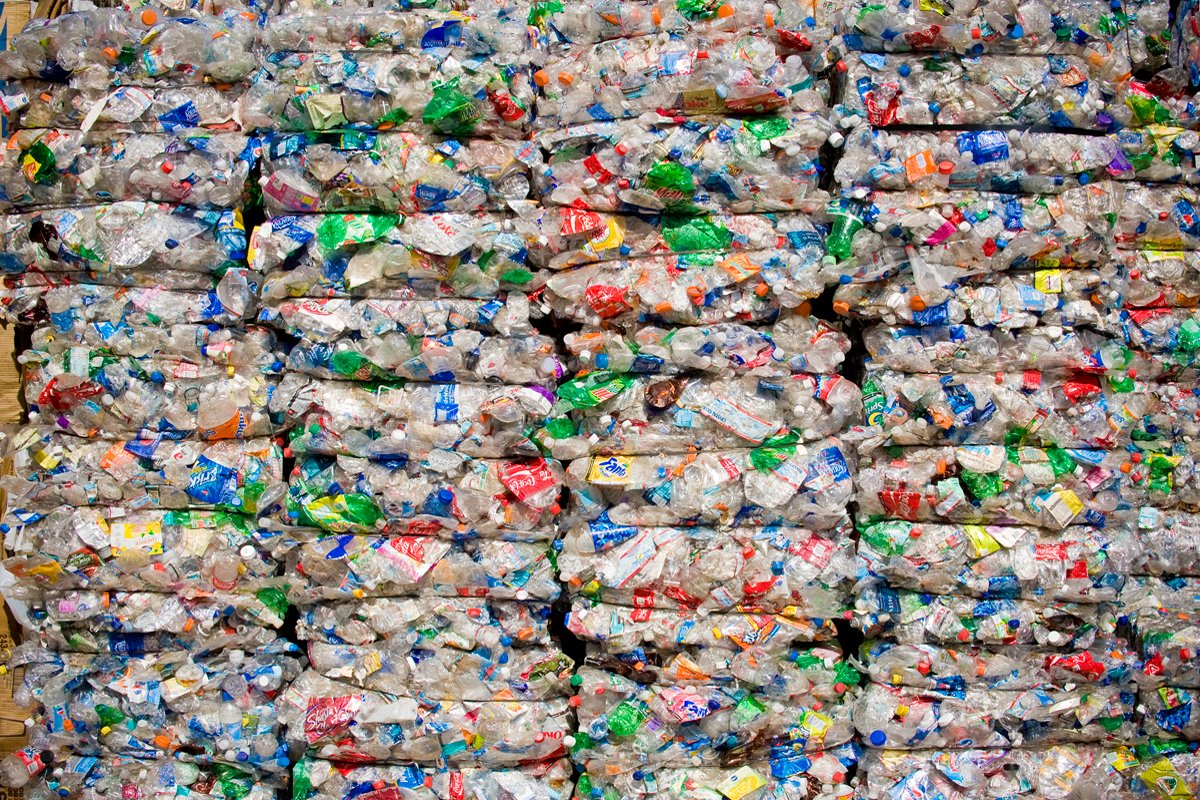Including the new Opportunities for Fairness in Farming Act in the upcoming farm bill would go a long way toward fixing the USDA’s commodity checkoff programs.

Including the new Opportunities for Fairness in Farming Act in the upcoming farm bill would go a long way toward fixing the USDA’s commodity checkoff programs.
January 17, 2024

Ranchers supervise grazing grass-fed cattle. (Photo courtesy of White Oak Pastures)
Back in the ’90s, beef was what was for dinner. As a fourth-generation Georgia cattleman, you’d think I’d be a big fan of that catchy campaign—but the truth is, the ad is the product of a system that has been putting ranchers like me out of business for decades.
The beef ads were paid for with funds collected through federal research and promotion programs, also called commodity checkoff programs. Started as a voluntary way for farmers and ranchers to pool their resources and promote their products, checkoff programs are now mandatory for producers of 22 different commodities, and in addition to paying for research and advertising they also funnel money from farmers to lobbying organizations with little accountability or transparency. Nearly a billion dollars are collected from farmers every year through the checkoff.
In my industry, farmers and ranchers are required to pay $1 for every animal they raise toward the fund. The beef checkoff program then contracts with a group called the National Cattlemen’s Beef Association (NCBA) for its research and promotion efforts. While the NCBA receives some membership dues and some corporate sponsorships, more than 70 percent of its budget—$26 million—comes out of the pockets of ranchers through the checkoff.
NCBA then turns around and lobbies on behalf of its largest members, including Cargill, McDonald’s, and Tyson Foods.
For example, NCBA successfully lobbied against mandatory country of origin labeling (MCOOL) for beef. MCOOL was a powerful marketing tool for independent American ranchers to distinguish our products from lower-quality imported meat sold by giant meatpackers like Brazil’s JBS.
Americans increasingly prefer to buy meat raised in the U.S., and country of origin labels would help them find what they’re looking for. Without this label, global corporations can repackage imported beef and label it “Product of U.S.A.,” deceiving consumers and stealing market opportunities from U.S. farmers and ranchers.
The checkoff reinforces the idea that all beef is equal: The “Beef. It’s What’s for Dinner” ad and NCBA’s other checkoff-funded promotions do not distinguish between beef that is imported and/or industrially raised and beef that is grassfed and regeneratively raised in the U.S. like mine.
That means that through the checkoff, every cattle rancher in America is being forced to give money to NCBA, even though its promotions often directly counter their interests. NCBA’s work is so unpopular among U.S. cattle ranchers, in fact, that less than 3 percent of them have joined as members.
The U.S. Department of Agriculture (USDA) is supposed to provide oversight of the checkoff program, but its negligence has enabled a history of corruption, collusive relationships, and the normalization of the use of checkoff money to lobby lawmakers—which is against the law.
There is a bipartisan bill on the table that would put a stop to this: the Opportunities for Fairness in Farming or “OFF” Act, introduced by Senator Mike Lee (R-Utah) and Senator Cory Booker (D-New Jersey) to rein in the runaway checkoffs.
Support is growing for the OFF Act, which isn’t meant to eliminate checkoff programs. What it would do is establish basic financial accountability and transparency for the checkoff dollars collected from farmers and ranchers, and prohibit these funds from being used to contract with groups that lobby on agricultural policy.
The OFF Act is one of many so-called marker bills for the upcoming farm bill, meaning it provides suggested policy and language for the lawmakers negotiating the farm bill to consider including in their massive, final bill.
In a recent hearing, House Agriculture Committee Chairman Glenn Thompson (R-Pennsylvania) said he thinks “the farm bill process is the appropriate path forward” for adding transparency to the checkoff.
I couldn’t agree more. If the OFF Act were included in the upcoming farm bill, we could prevent waste, fraud, and abuse in the checkoffs. To me, that sounds like the bare minimum requirements for a government program handling nearly a billion in funds taken from farmers.
Not surprising, NCBA is vocally opposed to the OFF Act, but farmers and ranchers across the nation are demanding change. Representing them in support of the OFF Act are groups like Farm Action Fund, R-CALF USA, the American Grassfed Association, the National Black Farmers Association, and the National Farmers Union. These groups say the OFF Act would give farmers and ranchers “a seat at the table” when it comes time to spend checkoff money.
I want my family’s future generations to thrive here in Bluffton, Georgia, where we raise livestock and tend our land according to regenerative principles with a team of butchers, cowboys, and farmers.
There is so much at stake with this farm bill, and Georgia lawmakers are in a pivotal position to create lasting change on behalf of families like mine.
The OFF Act would show farmers where our tax dollars are going and ensure we’re not funding our own downfall. Including it in the upcoming farm bill would go a long way toward empowering farmers like me and reining in corporate domination over our food system. I can only hope Senator Raphael Warnock, Senator Jon Ossoff, and House Agriculture Committee Ranking Member David Scott see this as the opportunity it is.

September 4, 2024
By paying top dollar for milk and sourcing within 15 miles of its creamery, Jasper Hill supports an entire community.
September 3, 2024

August 27, 2024

August 26, 2024

Like the story?
Join the conversation.